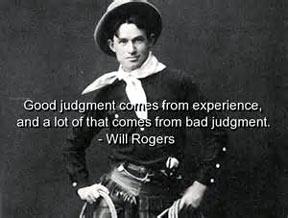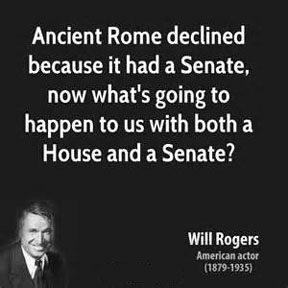In one way or another, the past three posts deal with H. sapiens’ relationship with the physical world. Other post series deal with H. sapiens’ treatment of fellow humans and some deal with how H. sapiens has allowed the machine ethic to take over theology, government, economic priority over life, and morality.
Just to highlight each subject:
Humans have started the sixth major extinction of life in the history of the planet.
Humans have destroyed the orderliness of the planet’s biosphere to the point humans will join other creatures in unnecessarily becoming extinct with them.
Humans have chemically altered the chemistry of the planet sufficiently to receive their own geologic epoch – the Anthropocene Epoch; Geologic epochs usually last two or three million years but humans ended the Holocene Epoch after just 11,500 years.
Economics continually grows more abusive to the planet population as international scope and computerization focus on an intense gathering of wealth for the few and in addition, without conscience increase the hardship on the quality of life for the rest.
Similarly, governments support corporate interests and refuse to openly and fairly care for all their citizens equally.
The measure of human worth and virtue is measured in dollars.
In sociology, a machine is any entity that is used to more easily achieve a goal. Machines can be a hammer, sunglasses, nuclear weapons, governments, organizations and prejudices. Humans have replaced religion with machines. Life according to a higher plane of existence and transcendent ethos is disappearing very rapidly. Today, it’s the machines that dictate morality.
Mariner believes this is overwhelming evidence that religion has been obliterated in the West; the East is catching up quickly. People today have lost faith in themselves which is what religion is all about. People chase the machines. It is a plastic world with no ethos, no reward for life, and no intrinsic value for achievement.
Consequently, the mariner will offer a generic religion starter kit for those who feel the absence of spiritual happiness.
RELIGION STARTER KIT
First, you need a god. How you envision god is very, very important. Many of you are aware that several practicing religions forbid any image of god – not even writing a name for god. There are two reasons for this: first, god has no shape; god is not a thing. God is a state of perfect being. Second, you can’t worship images, not even presumptions of images. The Jews call this Baal worship. The Christian Bible cites god in several places saying “you will have no other gods before me.” That includes pictures and words of god; they truly don’t look like god at all[1]. God is a singularity. This will have meaning in a moment.
Many religions have the same creation story where god creates a perfect world in a special location. God puts a male and most often a female at the location and they do something they aren’t supposed to do. This creation story is very important to the manner in which we utilize god in our lives. The story establishes something called ‘duality.’
Duality is a condition of existence. Everything – everything – has two or more sides or values. Examples: start and stop; top and bottom; light and dark; far and near; man and woman; good and evil, and so on. Do not try to find an exception. There is only one exception: god. In perfection, god cannot have more than one state of being. God by definition is a singularity.
Duality is our opportunity to sense more than one value for something. To move through life, we are constantly bombarded with things which require us to judge the correct value. In the area of religion, this judgment is about good or evil values; whether something is right or wrong in merit. There is an affinity between singularity and good judgments; there is a rejection of singularity when judgments are bad.
Now you must add an item to the starter kit: faith that a state of perfect being exists. You should seek feelings of perfection and what that does to your feelings of self. A hint about what perfection feels like is a transcendent sensation that lifts you above duality and is very, very peaceful. It isn’t so important that you imagine some literal moment; remember god isn’t a thing; god is a state of perfection. Further, your human desires likely do not reflect perfection – you exist in a dualistic reality. Speaking anthropomorphically, god draws you to be like god – to exist in a state of singularity. But first you need a god.
In the starter kit is a set of measuring devices which you use to measure the amount of perfection in an event, thought or motive in your life. These measuring tools are sort of like handy decision aids like a pregnancy stick or a ruler to measure legal fish or the air pressure in your tires. The scale on each of these tools has words to help with measuring:
Is this event, thought or motive good duality or bad duality? How much of god’s singularity is present? How much beauty? How much love? How much order? How much truth? How much empathy? How much compassion? This set of words determines the quality of an event that is created by humans. It is not advised that you invent your own sticks. Usually they measure bad duality. For example, common measuring sticks of bad duality are opportunism, prejudice, pride, greed and avarice. When you think about it, a state of perfection doesn’t have much that can be measured. However, all of dual reality can be measured for compliance with a state of perfection.
When you have this much of the kit assembled, it is time to practice your religion. Always carry your measuring sticks with you; your measurements will help you focus on god’s singularity and to live a happier and more satisfying life. The remaining parts of the starter kit require some seasoning on your part before you can assemble them.
Ancient Mariner
[1] Religion is about answering ‘why’ we exist and ‘what’ provides goodness in our lives. The mariner references old religions to help with understanding; the starter kit is quite transparent when it comes to sanctification, ritual, interpretation of goodness and what a transcendent being looks like or how it is identified. The generic identification of god is up to you. Joseph Campbell suggested that the term ‘myth’ always gets in trouble because people place their faith in the myth rather than in what the myth represents (Baal worship). Campbell said, “A myth is a metaphor for things we cannot easily explain or articulate.” So it is with the term ‘god.’ A common metaphor is “Goodness is godliness.”




